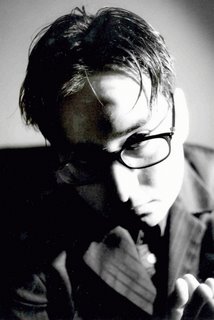
National Poetry Day 2006
When will poets get over words? They moon
And gloat on them, as if owners of origins, on
Top of the motion that moves the heavens, or
Moans in watershed winter. I tire of tongue-wet
Celebrations of glottals, the click, clip and clop
Of sounds throbbed together like rubbed lamps,
Jostled coins – poems a pocketful of poses. Too,
There’s been a lot of jocularity slash lightness lately –
Many mentions of popular figures, movies, and TV –
Getting overmuch of the world crammed into crawl
Spaces under the text, sometimes even on top of it –
How much hipness can any master muster, then use?
I was savvy before I saw those I love die and cease.
Now I leave my slip, suck, swoon outside for prose.
And gloat on them, as if owners of origins, on
Top of the motion that moves the heavens, or
Moans in watershed winter. I tire of tongue-wet
Celebrations of glottals, the click, clip and clop
Of sounds throbbed together like rubbed lamps,
Jostled coins – poems a pocketful of poses. Too,
There’s been a lot of jocularity slash lightness lately –
Many mentions of popular figures, movies, and TV –
Getting overmuch of the world crammed into crawl
Spaces under the text, sometimes even on top of it –
How much hipness can any master muster, then use?
I was savvy before I saw those I love die and cease.
Now I leave my slip, suck, swoon outside for prose.
poem by Todd Swift, copyright 2006
Comments